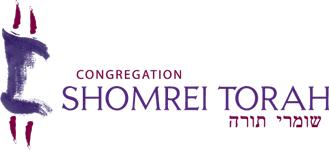Sermon by Rabbi George Gittleman
This summer I read the classic book Good-Bye to a River. First published in 1960 and written by naturalist and author, John Graves, it tells the story of his trip canoeing down a large section of the Brazos River, from its headwaters in the north west of Texas, to its salty end on the south eastern shores of the Gulf of Mexico.
Graves took the trip as a sort of farewell to both the river, soon to be dammed, and to a big chunk of his life which he had spent paddling, fishing and exploring its many riffles, bends and tributaries. He also says good-bye to the history of those who lived on the banks of the river - the Indian tribes, pioneers, homesteaders; hard, worn Texas folk of all sorts whose last vestiges of life - old cabins, broken-down cars, dying towns and hamlets - were soon to be under water.
It’s a lovely book if you like that sort of a read - man (or woman), the elements, history, but that is not why I mention it this afternoon. What struck me about the book as I read it was how much its story is our story, especially the story we tell over and over again every year during Yizkor.
The story of what was, the places in our hearts once alive, vibrant with feeling, connected to another; a parent, spouse, sibling, or friend, now gone. We gather together, but always our journeys are solo experiences - just us in our canoes, as it were, paddling as best we can, remembering what we can muster, and what we can bear.
For some, this journey is a relatively pleasant one, like revisiting a lost but not forgotten favorite place, like having a cup of hot cocoa and cookies with a grandparent, long gone, but still so fondly cuddled in the memory of our hearts.
For others, there’s much pain in these waters, rapids of emotion, hard rocks of hurt to maneuver around or to smash into. Lives cut short or long years together, so many, that being apart seems unbearable. Nevertheless, we find comfort in each other’s presence, and in the liturgy passed down to us. We know that although we ultimately go solo we are not the first, nor the last to navigate these waters. We do the best we can. We strive for closure, a sense of completeness, a sense of rest and calm and good in ourselves and in those we’ve lost. And in truth, for many of us, some solace comes. What is also true is that as much as we want it all to be ok, whatever our experiences are, there is often, if not always a sense of incompleteness. It’s simply not ok. Our losses hurt, and we feel diminished with little that comforts us.
John Graves puts it well when he writes about rivers, but really about life:
A whole river that is really a river is (too) much to comprehend…A whole river is mountain country and hill country and flat country and swamp and delta country, is rock bottom and sand bottom and weed bottom, is blue, green, brown, wide, narrow, fast, slow, clean, filthy water, is all kinds of trees and grasses, and all breeds of animals and birds…is a thousand differing and not compatible things in-between that point where enough of the highland drainlets have trickled together to form it, and that wide, flat, probably desolate place where it discharges itself into the salt of the sea. (p.4)
A whole river like a whole life, even a short one, is much, too much to comprehend. What we can know, what we can love and loose and remember is a piece of a river or a part of ones life.
This may seem a desolate fact, but really it is a blessing to know that our loved ones now gone are more than what we remember of them. And that, rather than yearning for more than we can ever grasp, we can find comfort, perhaps even pleasure in the part of their lives that we do know, we do remember, we do hold dear.
